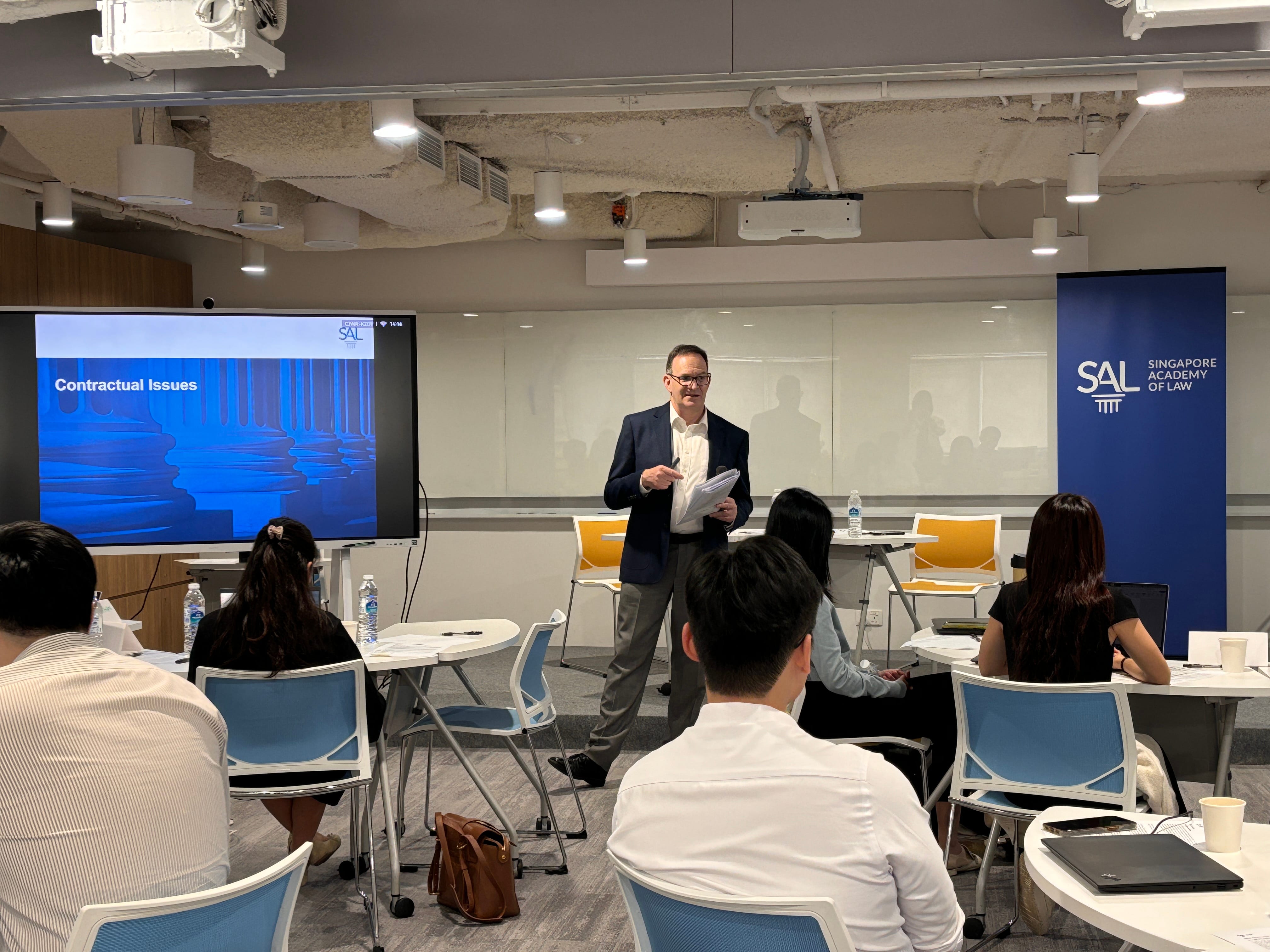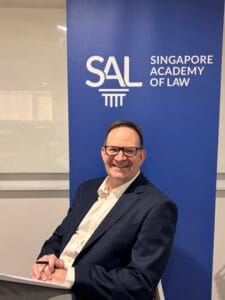
“Pracademic” Professor Andrew Godwin on the most valuable mindset for a junior lawyer
SAL catches up with the corporate law expert, former law firm partner and academic, who shares his insights on the mindset that sets young legal professionals apart.
What inspired you to transition from private legal practice to teaching law, and what do you find most rewarding about educating the next generation of lawyers?
I have always been interested in the technical aspects of law; namely, the concepts and doctrines underpinning the law and how these concepts and principles apply in practice. For me, learning about the law is an end in and of itself. It was therefore not a big leap to transition from private legal practice into teaching law to students at university and training the next generation of lawyers. In fact, I have always enjoyed working in the space in between the academy and legal practice. The term “pracademic” is perhaps the best way of describing people such as myself!
The most rewarding aspect of teaching and training is the opportunity to help students and lawyers combine their legal knowledge (the “what” and “why” questions) with their legal skills (the “how” and “when” questions) and maximise their professional development and career prospects.
It has therefore been very exciting for me to work with SAL on the Junior Lawyers Professional Certification Programme (JLP), which is designed to equip junior lawyers with essential skills for modern legal practice.
What do you believe is the most important skill or mindset for junior lawyers to develop early in their careers, and how do you incorporate that into your teaching?
The most important mindset, I think, is to treat every task (however mundane it might initially appear to be) as an opportunity to learn something new.
I remember when I was training to be a lawyer, a partner told me that I should always read and research a bit more widely than necessary for the purposes of completing the task at hand. In other words, it was worth the effort of spending even just an extra five minutes to explore a concept and improve one’s knowledge or skills.
This is one of the greatest benefits that generative AI offers junior lawyers today; namely, the capacity to read and research more widely and the opportunity for each junior lawyer to have their own “virtual” teacher or trainer to help them with their technical knowledge and professional development.
You have had a successful career in legal practice—are there any unexpected or interesting facts about your journey that might surprise junior lawyers considering a similar career shift?
One point that every junior lawyer should bear in mind is that there is no such thing as a “perfect” lawyer. Each of us has a different mix of knowledge and skills. The key to achieving success in legal practice is to identify those areas in which we need to develop our knowledge and skills and to access the right professional development and training opportunities to achieve our goals.
A significant shift in mindset occurred on my part when I realised that everyone was in the same boat in terms of the challenges of legal practice. The critical question is not “if” we can achieve the goal of becoming a successful lawyer but “how” we should develop our knowledge and skills to achieve that goal.
Another significant shift in mindset occurred when I realised that, although it is important to work hard and to commit the time and energy necessary to build a successful career, it is equally important to achieve an appropriate work-life balance. It is usually what we do and how we act when we are not at work that defines us as individuals.
What role do you think continuous training and professional development play in the success of a lawyer’s career, and why would you encourage junior lawyers to invest their time in the JLP?
It plays a critical role. I am a firm believer in the concept of life-long learning. It doesn’t matter how old we are or how senior we might have become in terms of our career progression; there will always be areas in which we can learn new things and develop our knowledge and skills.
The JLP presents an opportunity for junior lawyers to develop a life-long learning mindset and to strengthen both their legal knowledge and their legal skills. It is also a great opportunity to build professional networks and life-long friendships.
Professor Godwin will be teaching/co-teaching the following modules under the JLP:
Announced at the Opening of the Legal Year 2024, the Junior Lawyers Professional Certification Programme (JLP) is designed to equip junior lawyers—those with less than five years of post-qualification experience (PQE)—with essential skills for modern legal practice. The programme offers practical training in disputes and corporate practice, imparts management skills, and reinforces the core principles of professional ethics.
To register for the JLP Opening Conference and Launch, click here. Or click here to view the full JLP calendar for 2025-2026 and to register.
___________________________________________
About Professor Andrew Godwin

Professor Andrew Godwin is Professor of Commercial Law at Melbourne Law School, Director of the Melbourne Law Masters, Joint Associate Director of the Corporate Law and Financial Regulation Research Program at the Melbourne Centre for Commercial Law and Associate Director (Commercial law) of the Asian Law Centre. Prior to joining Melbourne Law School as a member of the academic staff in 2007, Andrew was in legal practice for over 15 years, 10 of which were spent in Shanghai where he was a partner of an international law firm.
Andrew works and researches in the areas of financial regulation, financial services law, corporate and insolvency law, property law, and the regulation of the legal profession. Andrew has published extensively in both academic and professional journals. He is a co-author of Sackville & Neave Australian Property Law and Ford, Austin and Ramsay Principles of Corporations Law, and co-editor of Research Handbook on Asian Financial Law (Edward Elgar, 2020), The Cambridge Handbook of Twin Peaks Financial Regulation (Cambridge University Press, 2021) and Technology and Corporate Law (Edward Elgar, 2021).
Andrew served as Special Counsel and Acting General Counsel at the Australian Law Reform Commission from September 2020 to February 2024. Andrew has acted as a consultant to a broad range of organisations, regulators and governments, including the Australian Securities and Investments Commission, the Australian Prudential Regulation Authority, the Commonwealth Attorney-General’s Department, the Australian Federal Police, the Asian Development Bank and the World Bank. Andrew is a fellow of the Australian Academy of Law, a Distinguished Fellow of the Singapore Academy of Law and a member of the Advisory Board of the Asian Business Law Institute in Singapore.

